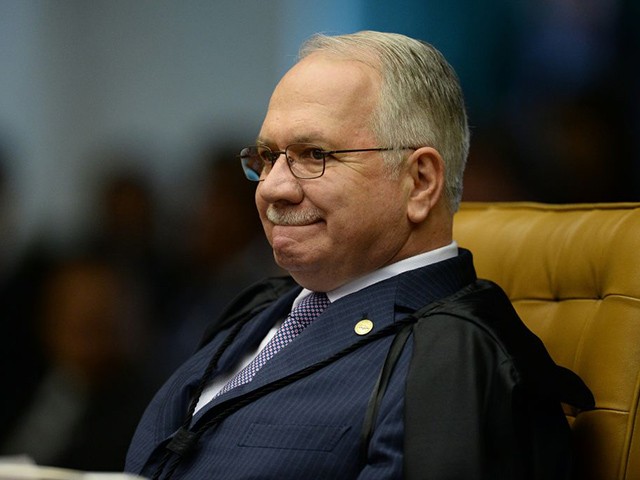Brazilian Supreme Federal Tribunal (STF) Justice Edson Fachin granted three injunctions on Monday that suspended decrees by President Jair Bolsonaro making it easier to own firearms and ammunition, citing the risk of “political violence” as the country prepares for general elections in October.
The requests for injunctions came from Brazil’s Socialist Party (PSB) and Worker’s Party (PT).
The decrees, issued by Bolsonaro in 2019 and amended in 2021, allow Brazilian citizens to keep up to six firearms at their place of residence provided they meet the requirements of Brazil’s Federal Police, such as background checks, training courses, and truthfully completing a signed declaration. Applicants must not be linked to known criminal organizations, or act as an intermediary for someone who does not meet the requirements.
The decrees themselves do not cover the subject of carrying firearms, which is strictly controlled in Brazil, requiring a special permit usually reserved for specific groups such as law enforcement.
Justice Edson Fachin provisionally and urgently admitted three requests for injunctions, two from Brazil’s Socialist Party (PSB) and one from the Worker’s Party (PT). The injunctions, which suspend Bolsonaro’s decrees, were granted because Fachin detected a sense of urgency around the October general election which “exaggerates the risk of political violence.”
“While it is advisable to wait for the contributions, always careful, resulting from requests for view, after more than a year and in the light of recent and regrettable episodes of political violence, it is necessary to grant the precautionary measure in order to protect the very object of deliberation of this Court,” the Justice stated in his ruling.
“In other words, the risk of political violence makes the need to grant the injunction extremely and exceptionally urgent,” he continued.
According to the justice, the respective authorities in Brazil will only be able to authorize possession for those who demonstrate “effective need” to own firearms. He also ruled the acquisition of firearms should only be authorized for matters of public security or national defense, not reasons of private interest.
Fachin’s decisions must be taken to the virtual plenary referendum for review, in which the Justices of the Supreme Court must enter their votes in the Court’s electronic system. No date has yet been set for the review.
Bolsonaro denounced Justice’s Fachin’s injunctions on Monday as “authoritarian actions.”
“An authoritarian action is never called that by its author. On the contrary, it appears to fight supposed threats in order to be legitimized,” President Bolsonaro said on Twitter.
“Thus, abuses can be committed under the guise of confronting abuse. This is the evil of pretenses, they favor true tyrants,” he added.
Bolsonaro’s gun possession decrees were under review by Brazil’s Supreme Court, but the review was suspended in 2022 after a request from Justice Nunes Marques, one of Bolsonaro’s nominees to the Supreme Court.
In 2021, Justice Fachin held Bolsonaro’s decrees to be unconstitutional, following a request from the Socialist Party of Brazil (PSB). The PSB asked the Supreme Court to suspend the decrees by alleging they violated provisions of the 2003 Disarmament Law.
Justice Edson Fachin was also instrumental in the political return of socialist former President Luiz Inácio Lula da Silva in 2021, after the Justice vacated all the 2017 corruption sentences against Lula.
Brazilian ex-president (2003-2011) Luiz Inacio Lula da Silva arrives at the Federal Police headquarters where he is due to serve his 12-year prison sentence, in Curitiba, Parana State, Brazil, on April 7, 2018. (HEULER ANDREY/AFP via Getty Images)
Lula had been convicted on multiple charges of receiving upwards of $1 million in bribes as part of a nationwide corruption investigation known as Operation Lava Jato (Operation Car Wash), and was serving a sentence of nearly a decade in prison. Fachin was appointed to Brazil’s Supreme Court during the presidency of Lula’s political protégé, Dilma Rousseff (2011-2016).
Lula was released from prison in 2018, and with his corruption sentences vacated, was able to run for president again this year. The latest polls have Lula leading the race with 44 percent support against Bolsonaro’s 34 percent.
Brazilians will head to the polls on October 2 for a general election to choose President, Vice President, state governors, and members of the Brazilian Congress. If no presidential candidate obtains more than 50 percent of the votes on October 2, a runoff election will be held on October 30 between the two candidates with the most votes.
